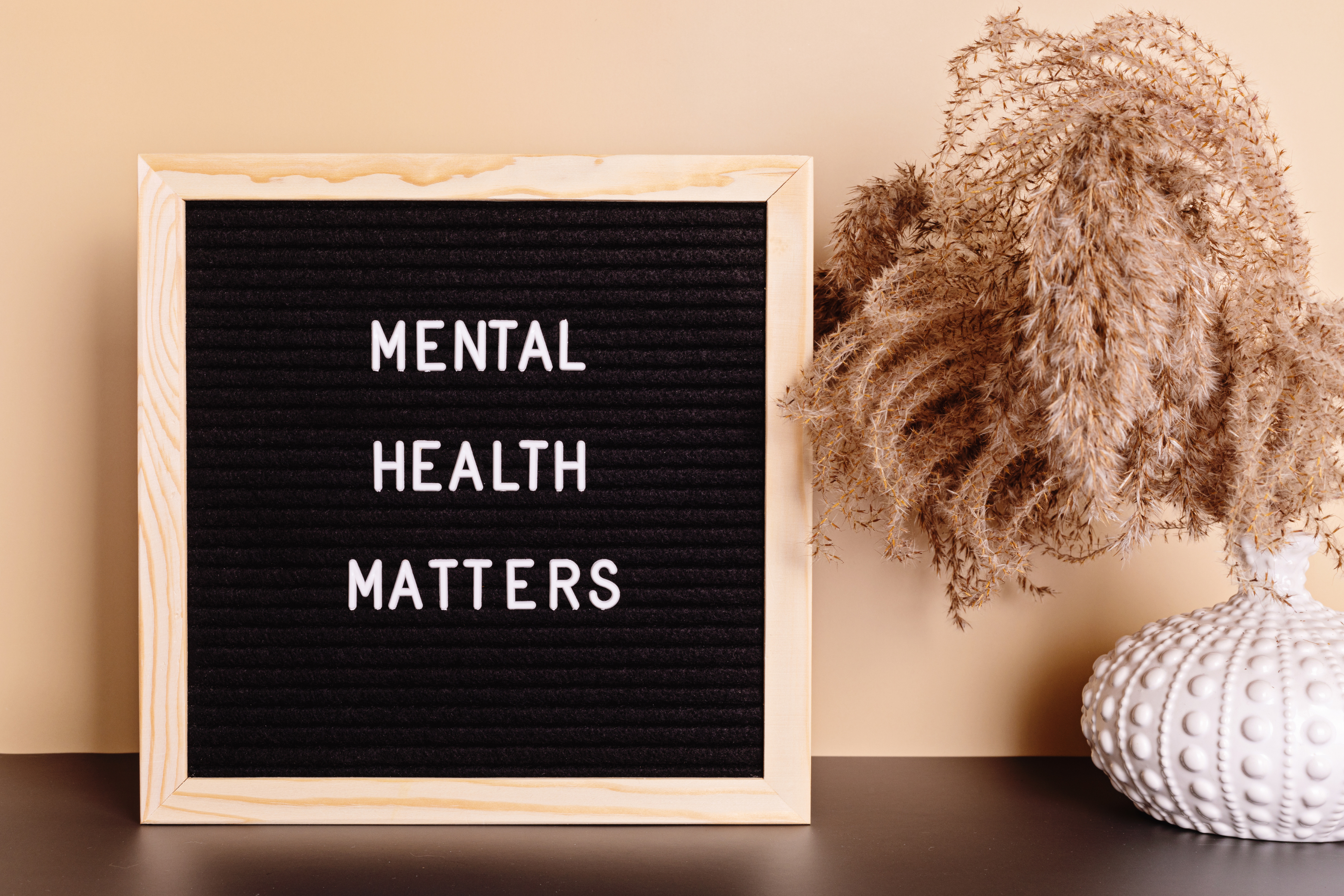
Beyond the Fire: The Psychological Aftermath of Wildfires
In late November 2024 New York and New Jersey and early January 2025, Los Angeles experienced a series of devastating wildfires, particularly the Palisades and Eaton fires, which began on January 8. As of now, these fires have claimed many lives and caused the destruction of thousands of structures, including homes and vital community infrastructure. The economic damages are reported in the billions.
While the immediate destruction is visible, the psychological impact on those affected by the fires is profound and long-lasting. Survivors often face heightened mental health challenges such as post-traumatic stress disorder (PTSD), anxiety, and depression. The trauma from losing homes, loved ones, and a sense of security can trigger intense emotional distress, leaving people struggling to regain a sense of normalcy.
Applied Behavioral Science (ABS) provides essential frameworks to understand and address these mental health impacts. ABS focuses on identifying and modifying behaviors to create positive change, a crucial approach when dealing with trauma recovery. ABS helps individuals build resilience, cope with anxiety, and develop strategies to navigate their grief.
Effects of natural disasters or crimes like arson on mental health
- Trauma and PTSD: Exposure to the trauma of losing homes or witnessing the destruction of communities can lead to PTSD. Survivors may experience flashbacks, intrusive thoughts, or emotional numbness, which can persist long after the fires have been extinguished.
- Anxiety and Uncertainty: The destruction of homes and the threat of future wildfires create lasting feelings of anxiety. Individuals may struggle with hypervigilance, constantly worrying about the next disaster or the stability of their environment.
- Grief and Loss: The loss of possessions, homes, and sometimes even lives, leads to profound grief. This emotional strain, if not addressed, can lead to depression, isolation, and an overwhelming sense of helplessness.
- Disruption of Routine and Community: Wildfires can displace individuals from their homes, disrupting daily routines and severing vital community connections. Social isolation can exacerbate mental health challenges, leaving survivors without the support they need for recovery.
ABS Approaches to Support Mental Health Recovery
- Community Support: Encouraging open dialogue within communities allows survivors to express their experiences and begin processing trauma. This emotional exchange can reduce isolation and foster healing.
- Cognitive Behavioral Therapy (CBT): CBT, an evidence-based therapeutic approach, helps individuals address negative thought patterns and build healthy coping strategies. It is particularly effective for managing trauma-related symptoms and anxiety.
- Resilience Training: Interventions focused on resilience and stress management can mitigate the long-term mental health effects of wildfires. Behavioral strategies that emphasize mindfulness, self-care, and adaptive thinking can help individuals regain control over their mental well-being.
- Access to Mental Health Resources: Ensuring survivors have access to mental health services is essential. Local support groups, counseling, and crisis helplines can provide immediate relief to those affected by the trauma of the wildfires.
While the physical toll of the recent wildfires in Los Angeles is evident, the unseen mental health impact is equally significant. As the situation continues to evolve, mental health professionals are essential in supporting recovery efforts. Through the application of Applied Behavioral Science, we can guide individuals and communities toward healing, helping them rebuild not just their homes but also their emotional resilience.
Learn More
Celebrating Thanksgiving: A Time to Reflect on Gratitude and Mental Health
As families across the United States gather to celebrate Thanksgiving, we at ABS Mental Health want to take a moment to reflect on the profound connection between gratitude and mental well-being. While this holiday is known for its hearty meals and time with loved ones, it’s also an opportunity to pause, practice mindfulness, and focus on the emotional benefits of giving thanks.
The Mental Health Benefits of Gratitude
Gratitude isn’t just a fleeting feeling—it’s a powerful tool for mental health. Studies show that practicing gratitude can:
- Reduce Stress: Taking time to appreciate the positive aspects of your life lowers cortisol levels, helping to manage stress effectively.
- Enhance Emotional Resilience: Grateful individuals often find it easier to bounce back from challenges and setbacks.
- Strengthen Relationships: Expressing gratitude fosters connection and strengthens bonds with family, friends, and colleagues.
- Improve Overall Happiness: Regular gratitude practice is linked to increased levels of dopamine and serotonin, the “feel-good” chemicals in the brain.
Gratitude in Action: Practical Tips
This Thanksgiving, consider incorporating these gratitude practices into your celebration to boost mental wellness:
- Keep a Gratitude Journal: Encourage everyone at the table to write down three things they’re thankful for. Reflecting on these moments promotes positive emotions.
- Share Words of Affirmation: Before diving into the feast, take turns sharing what you appreciate about one another.
- Give Back: Volunteer as a family or contribute to a cause you care about. Helping others is a powerful way to cultivate gratitude and purpose.
- Practice Mindful Eating: As you enjoy your meal, savor each bite and express gratitude for the hands that prepared it.
How ABS Supports Mental Health During the Holidays
For many, Thanksgiving is a joyful time, but it can also bring stress, anxiety, or feelings of loneliness. The pressure to create a “perfect” holiday or navigate family dynamics can take a toll on mental health.
At ABS Mental Health, we understand the complexities of the holiday season. Our programs are designed to support individuals and families facing mental health challenges, providing tools to manage stress, improve communication, and foster emotional resilience. Whether through individual counseling, group therapy, or corporate wellness initiatives, we’re here to help you thrive.
Finding Gratitude in the Everyday
Thanksgiving reminds us of the importance of gratitude, but it’s a practice that can—and should—extend beyond the holiday. By integrating small moments of thankfulness into your daily routine, you can enhance your overall mental health and foster a more positive outlook on life.
From all of us at ABS Mental Health, we wish you a Thanksgiving filled with warmth, connection, and peace. Let’s celebrate not just today but every day with hearts full of gratitude.
If you or someone you know could benefit from mental health support, please don’t hesitate to reach out to ABS Mental Health. Together, we can work toward a healthier, happier future.
Learn More
Celebrating Veterans Day: Honoring Service and Don’t Neglect Their Mental Health
Today, on Veterans Day, we honor the bravery, dedication, and sacrifice of the men and women who have served in the United States Armed Forces. Their unwavering commitment to protecting our country and its values deserves our utmost respect, gratitude, and support—not just today, but every day. At ABS Mental Health and Behavioral Health, we recognize the immense contributions veterans make to society and the importance of addressing their mental health as they transition back to civilian life.
Military service, while rewarding, often exposes veterans to significant mental and emotional challenges, including prolonged separations from loved ones, high-stress environments, and, in some cases, combat experiences. These situations can lead to unique mental health concerns such as post-traumatic stress disorder (PTSD), depression, and anxiety. Addressing these needs is essential to ensuring veterans can lead fulfilling lives, maintain strong relationships, and successfully reintegrate into their communities.
At ABS, we believe in fostering a community that values the mental health of all individuals, especially those who have given so much in service to our nation. Supporting veterans in prioritizing their mental well-being can empower them to navigate life’s challenges and reinforces the resilience they demonstrated during their service.
This Veterans Day, let us all pledge to build a society that honors and supports our veterans by promoting their mental health as a crucial part of appreciating their service. We thank our veterans for their selflessness and stand with them, committed to advocating for their well-being every step of the way.
For more information on mental health support services, visit our website at ABS Mental Health. Together, we can make a positive difference in the lives of those who have sacrificed so much for our freedoms.
Learn More
The Severity of Animal Abuse and the Importance of Rehabilitation
Animal abuse is a pervasive issue, impacting the lives of countless animals worldwide, with dogs and cats being among the most common victims. In 2023, studies indicated that nearly 70% of animal cruelty cases involved dogs, followed by 20% involving cats. The emotional and physical toll on these animals is profound, with many suffering lasting trauma, malnutrition, and severe injuries. Animal cruelty is often rooted in psychological issues, impulsive aggression, and poor impulse control, requiring not only punitive measures but rehabilitative solutions to break this cycle.
Animal cruelty doesn’t occur in isolation; it often correlates with a range of social and psychological issues. Individuals who abuse animals often struggle with impulse control, anger management, or deeply rooted behavioral problems. Studies reveal that abusive individuals are five times more likely to have aggression issues and are often disconnected from healthy emotional expression. Many perpetrators have experienced trauma themselves, and their inability to cope or channel their emotions healthily can lead to violent outbursts directed at vulnerable beings.
The Psychology of Animal Abusers
Animal abusers often display traits of impulsive aggression. Psychologists have found links between animal abuse and certain psychological disorders, including antisocial personality disorder and conduct disorder. Lack of empathy, high impulsivity, and low tolerance for frustration contribute to a mindset where animals are viewed as objects to dominate or harm. Abusers may project their frustrations onto animals, using them as an outlet for uncontrolled anger. Additionally, a lack of positive role models and support during formative years can leave individuals without the tools to control negative impulses or recognize cruelty as unacceptable.
In cases where animal abuse becomes habitual, therapy has been shown to help individuals unlearn harmful behaviors. Programs like Applied Behavioral Sciences (ABS) are crucial for teaching impulse control, managing anger, and developing empathy for all living beings. Through cognitive-behavioral therapy (CBT), abusers can identify the thought patterns that lead to abusive actions, learn healthier coping mechanisms, and cultivate respect for animals’ wellbeing.
Serial Animal Abuse and the Need for Intervention
Serial animal abuse cases are stark reminders of the need for early intervention. High-profile cases, such as those involving perpetrators who repeatedly hurt animals before escalating to other violent acts, underline the importance of identifying cruelty early. For instance, research on violent criminals, including well-known serial offenders, reveals that 43% had a history of animal abuse in childhood or adolescence. This progression highlights animal abuse as an early indicator of potentially dangerous behaviors, necessitating urgent intervention.
In another case, “The Link” study, which connected animal abuse with family violence, found that 71% of domestic violence victims reported that their abuser also targeted their pets. This chilling pattern underscores how animal abuse is frequently symptomatic of broader violent tendencies. Without treatment, abusive behaviors can escalate, impacting not only animals but human lives as well.
How Therapy and ABS Can Help Abusers
Rehabilitating individuals who have been cruel to animals requires a multi-pronged approach involving anger management, impulse control, and empathy-building exercises. Therapy through ABS, which specializes in behavioral corrections, can be life-changing. Therapists work closely with individuals to address underlying psychological issues, teaching them how to recognize harmful impulses and substitute aggressive responses with constructive ones.
For animal abusers, therapy is designed to address the root causes of their cruelty. Through anger prevention training, they learn to manage feelings without resorting to violence. Impulse control exercises help them to slow down and make thoughtful decisions, breaking the cycle of impulsive harm. Empathy exercises, including direct involvement with animal care in supervised settings, encourage individuals to view animals as beings worthy of respect and compassion.
The Path Forward
Addressing animal abuse is not only about punishing offenders but about recognizing abuse as a symptom of larger issues. Programs like ABS provide a rehabilitative path, offering support to individuals struggling with anger and impulse control issues. For those who have caused harm, therapy provides an opportunity to heal and change, enabling them to redirect their lives toward compassion and away from cruelty. Only by addressing the mental and emotional issues at the core of animal abuse can society hope to reduce its prevalence and protect vulnerable animals.
Animal abuse is a clear indicator of deeper psychological struggles, and effective intervention has the potential to transform lives—for both the animals and their abusers. ABS’s approach, grounded in empathy and behavioral therapy, offers a proven path forward, ensuring that individuals who have once acted cruelly can be guided to a healthier, more compassionate outlook. By recognizing the gravity of animal abuse and addressing it head-on, we can create a world where animals are respected and protected from harm.
To make a referral to or to speak to a therapist at ABS an appointment can be scheduled at ABSbehavioralhealth.com or call 1800-574-9ABS
Learn More
Back-to-School Stress? Here’s How to Manage Anxiety in August
As August rolls around, many people start to feel a shift in the air. For students, parents, and teachers, August often signals the end of summer and the beginning of a new school year. While this time can bring excitement and the promise of new beginnings, it can also bring about a significant amount of stress and anxiety. Managing this anxiety is crucial for mental well-being. Here are some practical strategies to help ease back-to-school stress and promote a smoother transition into the academic year.
1. Prepare Ahead of Time
- Start getting back into the school routine a couple of weeks before the first day. This includes adjusting sleep schedules, organizing school supplies, and discussing any concerns your child might have.
- Create a to-do list to break down tasks into manageable steps. This can help alleviate the overwhelming feeling of having too much to do in too little time.
2. Communicate Openly
- Encourage open communication with your child about their feelings regarding the upcoming school year. Address any worries or fears they might have and validate their feelings.
- For parents, sharing your own experiences with back-to-school jitters can help normalize these feelings for your child.
3. Establish a Relaxation Routine
- Incorporate mindfulness practices, such as deep breathing exercises or short meditation sessions, into your daily routine. This can help reduce anxiety and promote a sense of calm.
- Set aside time each day for relaxation and unwinding. Activities like reading, listening to music, or engaging in a favorite hobby can help manage stress levels.
4. Stay Organized
- A well-organized schedule can significantly reduce anxiety. Use a planner or digital calendar to keep track of important dates, assignments, and extracurricular activities.
- Ensure that school materials are organized and ready to go. Having a designated spot for school bags, books, and supplies can help reduce last-minute panic.
5. Promote Healthy Habits
- Ensure that everyone in the family is getting enough sleep, eating balanced meals, and staying hydrated. Proper nutrition and rest are essential for managing stress and maintaining mental clarity.
- Encourage regular physical activity, as exercise is a proven stress-reliever and mood booster.
6. Seek Professional Support if Needed
- If anxiety becomes overwhelming or persistent, consider reaching out to a mental health professional. They can provide additional strategies and support tailored to your specific needs.
- ABS Mental Health offers programs specifically designed to help manage stress and anxiety for both children and adults. Don’t hesitate to reach out for guidance and support.
7. Focus on the Positive Aspects
- Remind your child (and yourself) of the exciting aspects of returning to school, such as reuniting with friends, learning new things, and participating in favorite activities.
- Encourage a positive mindset by setting goals and looking forward to the new opportunities the school year brings.
Conclusion
Back-to-school time can be a stressful period, but with the right strategies in place, it’s possible to manage anxiety effectively. By preparing ahead, fostering open communication, and maintaining healthy habits, you can help create a smoother, more positive transition into the new school year. Remember, it’s okay to seek support when needed. At ABS Mental Health, we are here to help you navigate these changes with confidence and ease.
Schedule your appointment today with ABS Mental Health and start your journey to lasting recovery. Click here to make your appointment: Make an Appointment or call us at 1800-574-9ABS
Learn More
Finding Peace Within: How ABS Mental Health Therapy Can Help You
Introduction
In today’s fast-paced world, managing mental health can feel overwhelming. Whether you’re dealing with stress, anxiety, depression, or anger, having the right support is crucial. ABS Mental Health Therapy offers a beacon of hope and healing for those seeking to regain control of their lives. Let’s explore how ABS Mental Health can guide you on your journey to mental wellness.
Understanding ABS Mental Health
At ABS Mental Health, we believe that mental wellness is not just the absence of illness, but a state of overall well-being. Our approach is holistic, addressing the mind, body, and spirit. We provide a safe, compassionate space where you can explore your feelings, learn effective coping strategies, and work towards lasting change.
The Benefits of Mental Health Therapy
Therapy offers numerous benefits, helping you to:
- Gain Insight: Understand the root causes of your emotional struggles.
- Develop Coping Skills: Learn practical strategies to manage stress, anxiety, and other challenges.
- Improve Relationships: Enhance communication and strengthen your connections with others.
- Boost Self-Esteem: Build confidence and a positive self-image.
- Achieve Personal Goals: Set and achieve goals for personal growth and well-being.
Our Services
ABS Mental Health offers a wide range of services tailored to meet your unique needs, including:
Individual Therapy
One-on-one sessions with our experienced therapists provide personalized support and guidance. We help you uncover the underlying issues affecting your mental health and work with you to develop effective coping strategies.
Group Therapy
Group therapy offers a supportive environment where you can share experiences and learn from others facing similar challenges. It’s a powerful way to gain new perspectives and build a sense of community.
Family Therapy
Family dynamics play a crucial role in mental health. Our family therapy sessions focus on improving communication, resolving conflicts, and fostering a supportive home environment.
Specialized Programs
We offer specialized programs for anger management, trauma recovery, addiction, and more. These programs are designed to address specific issues with targeted therapies and support.
Why Choose ABS Mental Health?
At ABS Mental Health, we are dedicated to providing compassionate, high-quality care. Here’s why you should consider us for your mental health needs:
- Experienced Therapists: Our team consists of highly qualified professionals with extensive experience in various therapeutic modalities.
- Personalized Care: We tailor our approach to meet your unique needs and goals.
- Confidential and Safe Environment: Your privacy is our priority. We provide a safe, non-judgmental space for you to explore your feelings.
- Holistic Approach: We address all aspects of your well-being, including emotional, physical, and spiritual health.
Take the First Step Today
Your journey to mental wellness starts with a single step. Visit absmentalhealth.com to learn more about our services and schedule an appointment. Whether you’re facing a specific challenge or just need someone to talk to, ABS Mental Health is here for you. Make Appointment – ABS Mental Health or call us at 1800-574-9ABS
Learn More
Simple Steps to a Happier Mind: Achieving Mental Wellness Made Easy
In today’s fast-paced world, maintaining mental wellness can feel like an overwhelming task. However, achieving mental wellness doesn’t have to be complicated or time-consuming. By incorporating a few simple habits into your daily routine, you can significantly improve your mental health and overall well-being. Here are some easy steps to help you on your journey to a happier mind.
1. Practice Mindfulness and Meditation
Mindfulness and meditation are powerful tools for reducing stress and enhancing emotional health. Set aside just 10-15 minutes each day to sit quietly, focus on your breathing, and bring your attention to the present moment. This practice can help you manage anxiety, increase self-awareness, and improve your overall mood.
2. Stay Physically Active
Exercise is not only good for your body but also for your mind. Physical activity releases endorphins, which are natural mood lifters. Aim for at least 30 minutes of moderate exercise most days of the week. Whether it’s a brisk walk, a yoga session, or a bike ride, find an activity you enjoy and make it a regular part of your routine.
3. Connect with Others
Human connection is essential for mental wellness. Spend time with family and friends, join a club or a group with similar interests, or volunteer in your community. Building strong, supportive relationships can provide a sense of belonging and improve your emotional health.
4. Prioritize Sleep
Sleep is crucial for mental and physical health. Poor sleep can negatively impact your mood, energy levels, and cognitive function. Aim for 7-9 hours of quality sleep each night by maintaining a consistent sleep schedule, creating a relaxing bedtime routine, and ensuring your sleep environment is comfortable.
5. Eat a Balanced Diet
What you eat can affect how you feel. A balanced diet rich in fruits, vegetables, lean proteins, and whole grains can boost your energy levels and improve your mood. Avoid excessive caffeine, sugar, and processed foods, which can lead to energy crashes and mood swings.
6. Set Realistic Goals
Setting and achieving realistic goals can give you a sense of purpose and accomplishment. Break down larger goals into smaller, manageable steps, and celebrate your progress along the way. This approach can help build self-confidence and reduce feelings of overwhelm.
7. Limit Screen Time
Excessive screen time, particularly on social media, can contribute to anxiety and depression. Set boundaries for your screen time and make room for other activities that promote relaxation and connection, such as reading, hobbies, or spending time in nature.
8. Seek Professional Help When Needed
If you’re struggling with your mental health, don’t hesitate to seek professional help. Therapists, counselors, and mental health professionals can provide support, guidance, and effective treatment options. Remember, seeking help is a sign of strength, not weakness.
9. Practice Gratitude
Taking time to acknowledge the positive aspects of your life can improve your mental outlook. Keep a gratitude journal and write down three things you’re thankful for each day. This simple practice can help shift your focus from what’s going wrong to what’s going right.
10. Learn to Manage Stress
Effective stress management is key to maintaining mental wellness. Identify your stress triggers and develop healthy coping strategies, such as deep breathing exercises, engaging in hobbies, or talking to a friend. Managing stress proactively can prevent it from overwhelming you.
Conclusion
Improving your mental health doesn’t have to be a daunting task. By incorporating these simple steps into your daily routine, you can enhance your mental wellness and lead a happier, more fulfilling life. Remember, small changes can make a big difference. Start today and take the first step towards a healthier mind.
At ABS Mental Health, we understand that the journey to mental wellness can be challenging. Our dedicated team of mental health professionals is here to support you every step of the way. Whether you need counseling, therapy, or specialized programs tailored to your needs, ABS is committed to helping you achieve your mental health goals.
Don’t wait to get the help you deserve. Contact ABS Mental Health today and discover how our comprehensive services can assist you in living a healthier, happier life. Visit our website at absmentalhealth.com or call us at 1800-574-9ABS. Or you can schedule an appointment with this link Make Appointment – ABS Mental Health Your path to mental wellness starts with us.
Learn More
Tech Anxiety: Navigating Adjustment Disorders and ABS’ Mental Health Solutions
In an era dominated by rapid technological advancements, a significant segment of the population, particularly older adults in developed societies, is grappling with a unique set of challenges. Adjustment Disorder, as defined in the Diagnostic and Statistical Manual of Mental Disorders, Fifth Edition (DSM-5), becomes particularly relevant in this context. This article delves into the essence of Adjustment Disorder, underpinning it with insights from leading research studies, and explores its prevalence and impact among older adults resistant to modern technology.
Adjustment Disorder: An Overview
Adjustment Disorder, as characterized by the DSM-5, is a group of symptoms, such as stress, feeling sad or hopeless, and physical symptoms, that can occur after you go through a stressful life event. The symptoms are more severe than would normally be expected and can cause significant impairment in social, occupational, or other important areas of functioning.
A pivotal study by Casey P. and Bailey, S. (2011), published in the “American Journal of Psychiatry,” notes that, “Adjustment Disorder is uniquely positioned in psychiatric diagnosis, straddling the boundary between normal and pathological responses to stress.” This statement underlines the disorder’s significance in the realm of mental health, emphasizing its impact on daily functioning.
Another seminal work by Strain, J. J., & Diefenbacher, A. (2008) in the “Journal of Clinical Psychiatry,” remarks, “The diagnosis of Adjustment Disorder remains crucial in highlighting transient psychopathological responses, which, while not meeting the criteria for other disorders, still warrant clinical attention and intervention.” This accentuates the need for recognizing and addressing Adjustment Disorder, especially in specific demographics.
The Plight of Older Adults in the Face of Technological Advancement
In developed societies, older adults often find themselves at a crossroads between traditional methods of communication and rapidly evolving technology. This transition isn’t merely about adapting to new gadgets; it’s about a fundamental shift in societal interaction and information processing.
Resistance to technology among older adults can be attributed to various factors, including the fear of the unknown, discomfort with learning new skills, and a sense of nostalgia for traditional methods of communication. For many, the digital world seems fast-paced and impersonal, leading to feelings of alienation and inadequacy.
The Psychological Impact of Technological Resistance
The resistance to embrace technologies like smartphones, emails, and video conferencing can trigger significant stress, anxiety, and even panic among older adults. The inability to connect with loved ones or access essential services online can exacerbate feelings of isolation and helplessness. In line with the DSM-5 criteria, these stressors can precipitate symptoms consistent with Adjustment Disorder.
 Research Findings and Analysis
Research Findings and Analysis
Research studies have begun to shed light on this phenomenon. A study by Smith, A. & Anderson, M. (2017) in “Gerontology & Geriatric Medicine,” highlights that “older adults who resist adopting technology show higher levels of anxiety and stress, indicative of Adjustment Disorder, compared to their tech-savvy counterparts.” This correlation underscores the profound impact that technological alienation can have on mental health.
Furthermore, a research article in the “Journal of Aging and Health” (2019) points out, “The rapid pace of technological advancement can act as a chronic stressor, potentially leading to Adjustment Disorder in older adults.” This observation ties the experience of older adults directly with the diagnostic criteria of Adjustment Disorder, emphasizing the need for tailored therapeutic interventions.
The intersection of Adjustment Disorder and the reluctance of older adults to embrace technology is a poignant example of the challenges posed by rapid societal changes. While technology advances, it is crucial to ensure that it doesn’t alienate segments of the population. Mental health professionals, caregivers, and technology developers must work collaboratively to bridge this gap, offering support and resources to ease the transition for older adults. By understanding and addressing the underlying fears and anxieties associated with technological advancements, we can foster a more inclusive and empathetic society.
Embracing Change: ABS’ Approach to Technological Resistance in Mental Health
In an age where technology permeates almost every aspect of life, a significant number of individuals find themselves overwhelmed and resistant to its rapid integration. Applied Behavioral Sciences (ABS), renowned for its comprehensive programs in General Mental Health, has acknowledged this phenomenon. It has developed specialized treatment strategies for those affected by severe anxiety and panic related to adjustment disorders stemming from technological advancements. This article delves into the symptoms of technological resistance, the offense taken by the older generation at being nudged towards technology, and how ABS offers a pathway to managing and overcoming these challenges.
Symptoms of Technological Resistance
Technological resistance, especially among older adults, manifests in various psychological and behavioral symptoms. These include:
- Stress and Anxiety: Constant exposure to technology can lead to heightened stress levels, particularly when individuals feel pressured to adapt to platforms they don’t understand.
- Frustration and Agitation: A feeling of irritation and short-temperedness, especially when prompted by younger people to use technology like emails, social media, or smartphones.
- Avoidance Behavior: Actively avoiding the use of technology, even when it hampers daily functioning or communication.
- Feelings of Inadequacy: Expressing sentiments such as “I am not tech-savvy” or “I don’t understand this,” accompanied by a sense of defeat.
- Social Withdrawal: Reducing interactions due to the inability or unwillingness to use modern communication tools.
These symptoms can significantly impair an individual’s ability to function effectively in a technology-driven society.
 ABS’ Individualized Treatment Strategy
ABS’ Individualized Treatment Strategy
Recognizing the unique challenges posed by this resistance to technology, ABS has developed targeted treatment strategies. These interventions are tailored to each individual, acknowledging their specific concerns and barriers. The treatment plan often includes:
- Cognitive Behavioral Therapy (CBT): To address negative thoughts and beliefs about technology and replace them with more constructive patterns.
- Stress Management Techniques: Teaching relaxation and coping strategies to manage anxiety and stress related to technology use.
- Gradual Exposure: Slowly introducing technology in a non-threatening manner to reduce avoidance behavior.
- Skill Development: Offering training and support to develop technological skills at a comfortable pace.
Accessing ABS Services
For individuals experiencing distress due to technological resistance, ABS offers a gateway to professional help. This assistance is not limited to the individuals themselves but is also available to family members observing high levels of agitation and frustration in their loved ones.
To schedule an appointment or to learn more about the services offered, individuals can visit the ABS website at absmentalhealth.com. The website provides comprehensive information on ABS therapists, treatment approaches, and how to initiate counseling.
 Conclusion
Conclusion
The resistance to modern technology, while often overlooked, can lead to significant mental health challenges. ABS’ Applied Behavioral Sciences program plays a crucial role in addressing this issue. By providing specialized and empathetic treatment, ABS aids individuals in navigating the complexities of modern technological society. Whether it’s through individual therapy or family support, ABS is committed to helping those grappling with technological resistance to find balance and peace in today’s ever-evolving world.
Learn More

Navigating the Challenges of Gambling Addiction: Pathways to Recovery
Gambling addiction, or problem gambling, is a complex and often misunderstood condition. Unlike substance abuse, the signs of gambling addiction can be subtle, yet the impact on a person’s life can be just as devastating. This addiction is not just about the occasional bet or enjoying a casual night at the casino; it’s a compulsive behavior that can lead to serious financial, emotional, and social consequences.
Understanding Gambling Addiction
Gambling addiction is characterized by an uncontrollable urge to gamble, regardless of the negative impact it may have on one’s life. It’s a progressive addiction that can interfere with personal relationships, work, and finances.
The Lifelong Impact
- Ongoing Struggle: For many, gambling addiction is a lifelong battle. The urge to gamble can be triggered by stress, life changes, or even exposure to gambling activities.
- Relapse Risks: Similar to other addictions, the risk of relapse is high. It requires continuous effort and support to manage these impulses effectively.
Not too long ago in a small, picturesque town, young Alex’s first encounter with gambling was through innocent card games and dice with his grandmother, Mabel. Their afternoons, filled with laughter and playful competition, unknowingly sowed the seeds of an addiction that would come to dominate Alex’s life.
As Alex grew, so did his fascination with gambling. What started as simple games at home soon escalated to frequent visits to casinos and nights spent in the glowing allure of online gambling. The thrill of winning was intoxicating, but the losses quickly accumulated, plunging Alex into a cycle of chasing losses and deeper into addiction.

Gambling began to take a toll on every aspect of his life. His financial stability crumbled, relationships strained, and the family home, once a haven of happy memories, turned into a silent spectator to his downfall. Lies to cover his tracks became frequent, eroding the trust within his family and leaving a once-close family unit fractured.
The realization of his addiction’s severity hit Alex like a ton of bricks. In a moment of despair and clarity, he understood the need for change. Embarking on a challenging journey towards recovery, Alex sought help through individual and group psychotherapy. These sessions were eye-opening, helping him unravel the psychological threads of his addiction and learn coping mechanisms to combat the urge to gamble.
The path to healing was neither quick nor easy. It involved mending the bonds he had broken, a process filled with heartfelt apologies and rebuilding trust. His family, though deeply hurt by his actions, stood by him, offering unwavering support and love.
Years later, Alex’s life has transformed. The house that once echoed with the sounds of a family in distress now rings with laughter and unity. Alex, now a pillar of strength for others battling similar addictions, often shares his story, highlighting the crucial role of therapy in his recovery. Card games have resumed in the household, not as a reminder of a dark past, but as a symbol of resilience, recovery, and the enduring bond of family.

Alex’s journey is more than a story of addiction; it’s a powerful narrative of redemption, the resilience of the human spirit, and the profound impact of professional help and familial love in reclaiming a life from the clutches of gambling addiction.
Effective Treatments for Gambling Addiction
The good news is that gambling addiction is treatable. A combination of therapies and support systems can provide the necessary help.
- Psychotherapy: This is the most effective treatment. Cognitive Behavioral Therapy (CBT) helps individuals identify and change the thought patterns that lead to gambling.
- Group Support: Organizations like Gamblers Anonymous offer peer support, essential for recovery.
- Medications: While no specific medication treats gambling addiction, some, like antidepressants, can help manage co-occurring disorders.
- Financial Counseling: Financial management is crucial since gambling often leads to significant financial strain.
- Family Therapy: Family support is vital in recovery, offering a solid system of accountability and understanding.
Why Choose Psychotherapy?
Psychotherapy, particularly CBT, offers a structured approach to overcoming gambling addiction. It helps individuals build coping strategies, improve problem-solving skills, and develop healthier ways to manage stress and triggers.

ABS Applied Behavioral Sciences: A Beacon of Hope
For those struggling with gambling addiction, ABS Applied Behavioral Sciences offers a ray of hope. ABS specializes in providing comprehensive treatment plans tailored to individual needs.
- Personalized Care: At ABS, each treatment plan is personalized, recognizing that every individual’s journey is unique.
- Expert Team: The team of experts at ABS is well-versed in the latest treatment modalities for gambling addiction.
- Continuous Support: ABS understands the importance of ongoing support in the journey towards recovery.
Making an Appointment
For anyone ready to take the first step toward recovery, ABS Applied Behavioral Sciences is here to help. Appointments can be easily scheduled at absbehavioralhealth.com, offering a convenient way to access professional help.
Conclusion
Recovering from gambling addiction is a journey that requires patience, perseverance, and the right support. With the help of ABS Applied Behavioral Sciences and other treatment methods, individuals can overcome the challenges posed by this addiction and move towards a healthier, more fulfilling life.
Remember, taking the first step is often the most crucial part of the journey towards recovery.
Learn More
PTSD and Depression After Work-Related Accidents: The Healing Power of Psychotherapy
In the world of modern work, where we often spend a significant portion of our lives, the unexpected can happen. Unfortunately, work-related accidents can leave a lasting impact on our mental health, leading to conditions like Post-Traumatic Stress Disorder (PTSD) and depression. In this article, we’ll explore the challenges faced by individuals dealing with these conditions after a workplace incident and how psychotherapy can provide the healing they need. We’ll also introduce you to Applied Behavioral Sciences (ABS), a mental health resource with locations in Nassau County and Brooklyn, New York, that accepts workers’ compensation insurance and can offer crucial support.
Understanding PTSD and Depression After Work-Related Accidents: The Silent Struggles
Work-related accidents can be physically and mentally traumatic experiences. Beyond the immediate physical injuries, individuals often grapple with psychological scars that go unnoticed. PTSD and depression are two common mental health conditions that may emerge following such incidents.

PTSD (Post-Traumatic Stress Disorder): PTSD can develop after exposure to a traumatic event, like a workplace accident. Flashbacks, nightmares, and severe anxiety are hallmark symptoms. Sufferers may become hyper-vigilant, avoid reminders of the incident, and experience mood swings.
Depression: After a work-related accident, individuals may experience a profound sense of hopelessness and despair. Depression can manifest as persistent sadness, loss of interest in activities, fatigue, and feelings of guilt or worthlessness.
The Isolation
One of the biggest challenges with these conditions is the sense of isolation that often accompanies them. Those affected may feel like no one truly understands their struggles, further exacerbating their emotional pain.

The Power of Psychotherapy Breaking the Silence
Psychotherapy, or talk therapy, is a highly effective approach to addressing the emotional toll of work-related accidents. It provides a safe and supportive space for individuals to open up about their experiences, thoughts, and feelings.
Benefits of Psychotherapy for PTSD and Depression
Coping Strategies: Psychotherapy equips individuals with practical coping strategies to manage their symptoms and regain a sense of control over their lives.
Emotional Healing: It allows for the processing of trauma and grief in a structured and therapeutic environment, helping individuals move towards emotional healing.
Improved Functionality: Psychotherapy can enhance an individual’s ability to function in daily life, rebuild relationships, and return to work when they are ready.

Accessing Help at Applied Behavioral Sciences – A Trusted Partner
Applied Behavioral Sciences (ABS) is a mental health resource dedicated to providing compassionate care to those struggling with PTSD, depression, and other mental health challenges, particularly after work-related accidents.
Multiple Locations for Your Convenience
ABS has two accessible locations to serve you:
ABS Nassau County: Located at 826 Merrick Rd, Baldwin, NY 11510.
ABS Brooklyn: Situated at 1336 Utica Ave Fl #2, Brooklyn, NY 11203.
Both locations have a team of experienced mental health professionals who specialize in helping individuals cope with trauma and occupational injuries. They understand the unique challenges faced by those affected by work-related incidents and are committed to providing tailored support.
Workers’ Compensation Insurance Accepted
A significant advantage of seeking help at ABS is their acceptance of workers’ compensation insurance. This means that individuals can receive the support they need without the added financial burden, ensuring access to crucial mental health services.
The emotional aftermath of a work-related accident can be daunting, but there is hope and help available. Psychotherapy can be a lifeline for individuals dealing with PTSD and depression, providing them with the tools and support they need to reclaim their lives. If you or someone you know is struggling, reach out to Applied Behavioral Sciences at absmentalhealth.com to learn more about their services and how they can assist in your healing journey. Remember, healing is possible, and you don’t have to face it alone.
